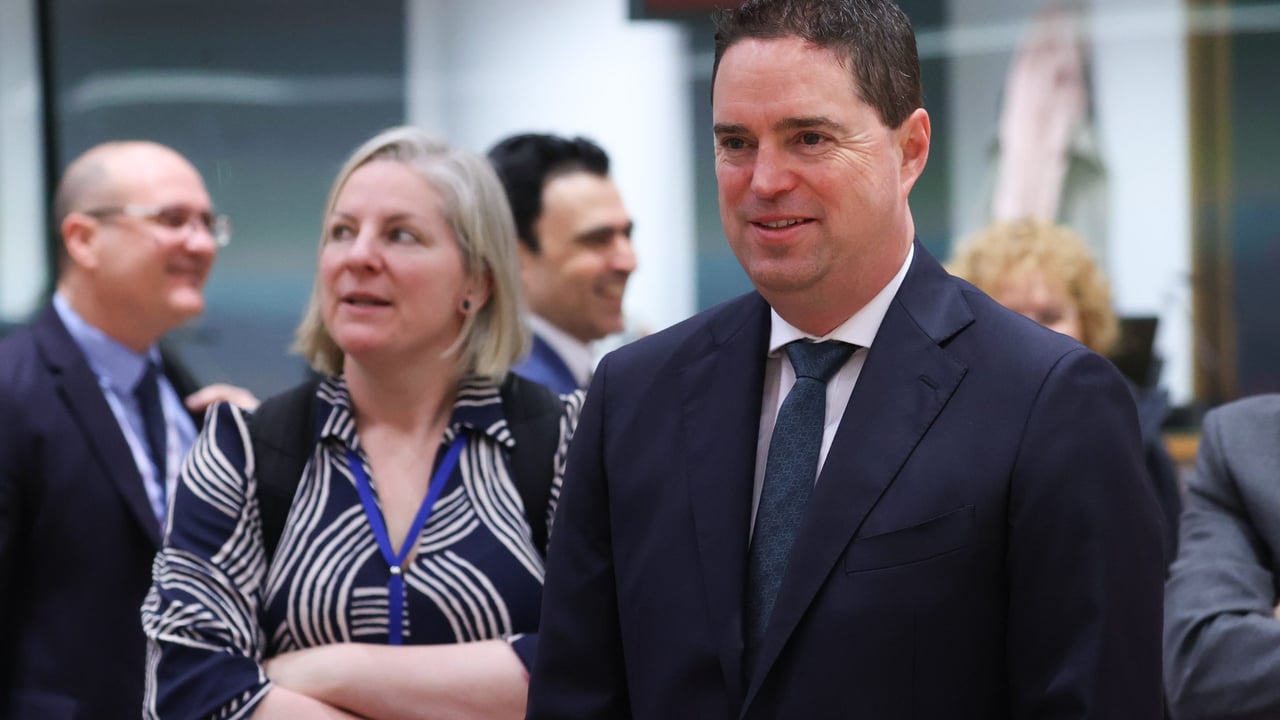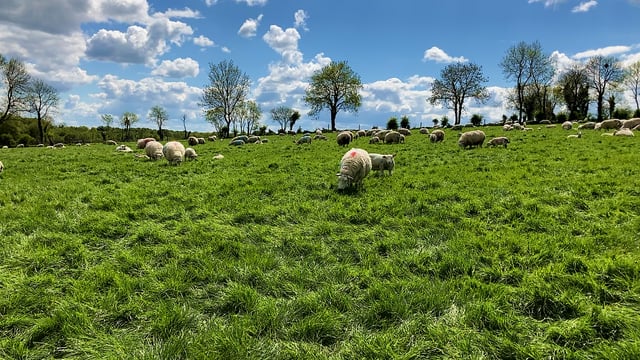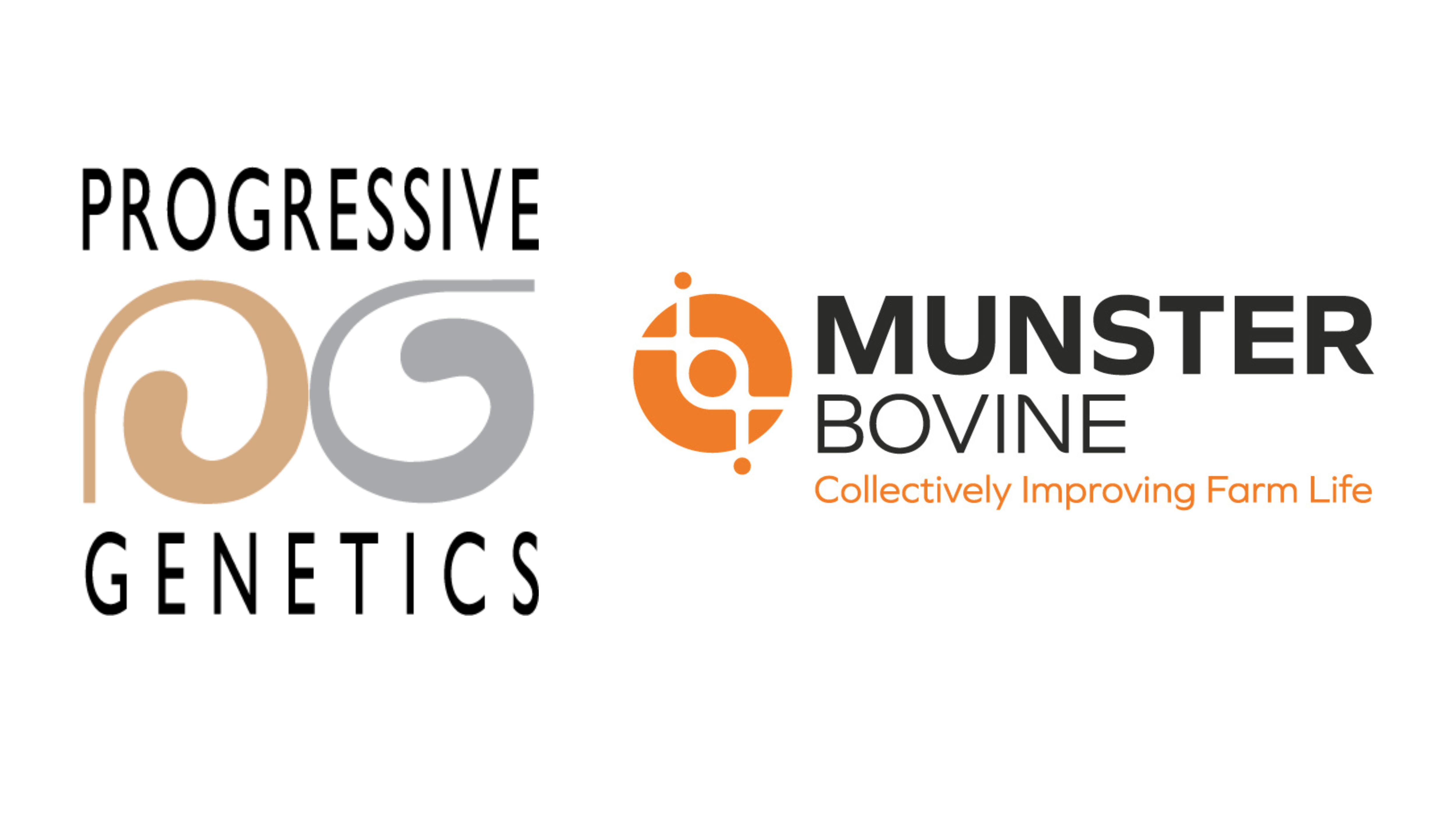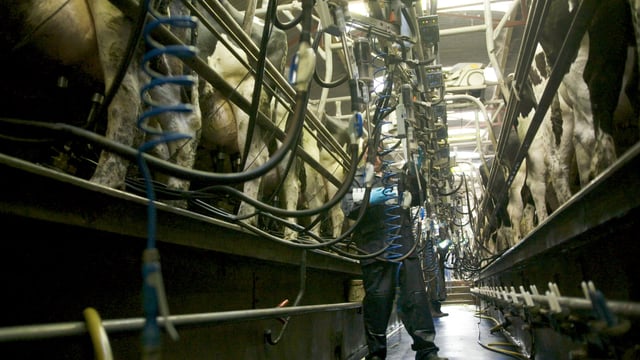Watch: Heydon in Brussels - 'For us in Ireland Mercosur is an issue'
Four days into the job and the new Minister for Agriculture, Food, and the Marine, Martin Heydon, had a clear message to deliver on his first official visit to the EU Agriculture and Fisheries Council roundtable in Brussels today (Monday, January 27).
Minister Heydon said: "We oppose Mercosur in its current form because there is an economic impact from it - our farmers who are held to a very high standard of environmental standards yet on the opposite side they see a trade deal bringing in produce potentially at a lower standard - that's their sentiment, their feeling.
"We want to examine further the legal text around the sustainability piece that the commission has brought forward and to raise those concerns that we have in relation to Mercosur.
"We are a small open nation and trade in general is very important to us and it is very important for the EU."
He also highlighted that there are "real concerns" about the Mercosur trade deal from sectors in Ireland which are vulnerable, "particularly beef".
Minister Heydon told the Agri-Fish Council that he is "a farmer, born and raised".
"I continue to run my beef and tillage farm in Ireland with my family so I know, first hand, the opportunities and the challenges that our primary producers and our agri industry face," he said.
The minister also highlighted to the council that he supported proposals put forward by the Commissioner for Agriculture and Food, Christophe Hansen, to enchance farmers’ position in the food supply chain, and to further protect them against unfair trading practices.
"I support the need for farmers to have a fair and sufficient income and the need to strengthen farmers' bargaining position in the food supply chain," he added.
In a discussion on Common Agricultural Policy (CAP) simplification, Minister Heydon called for the council to concentrate on changes that will make the biggest impact for farmers and administrations in reducing administrative burdens.
Minister Heydon set out to council members that there is a need to "simplify" matters for administrations and most importantly for farmers.
He said he supported the need for performance assessment in order in to retain CAP funding "in order to verify and highlight the good work that is being done by farmers through meaningful and effective reports backed by data".
"It should not however be a basis for financial corrections, we should consider whether the administrative burden required under the current performance clearance framework is proportional," Minister Heydon added.
He said "what is measured, needs to be meaningful".
Following the meeting today Czesław Siekierski, Polish Minister for Agriculture and Rural Development, said that the Polish presidency will work on simplifying CAP.
"The goal should be to make life easier for farmers and reduce the administrative burden.
"We also talked today about simplifying the CAP settlement procedure, and there is clear support from ministers in this regard," he stated.
A number of member states argued during the Agri-Fish Council roundtable that the financial and administrative burden of the performance clearance procedure was unduly excessive.
Some called on the commission to amend the basic legislation of the CAP while others called for greater flexibility in implementing the "green architecture" by limiting requirements to what is strictly necessary, providing further derogations, or increasing rewards for farmers.
A number of ministers also highlighted the need for greater efficiency and flexibility when amending the CAP strategic plans.
During a discussion on trade issues ministers highlighted the importance of agrifood trade for the EU’s agriculture sector, particularly in view of the current geopolitical uncertainties.
They also discussed the prospect of a reserve of at least €1 billion to insure against any potential negative impact of the Mercosur agreement.





